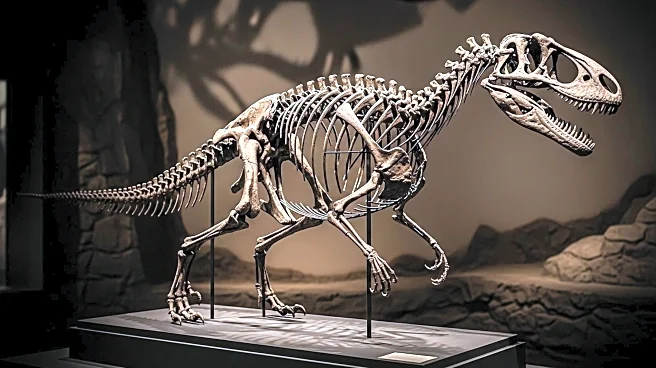What is the story about?
What's Happening?
A newly identified species of meat-eating dinosaur, Joaquinraptor casali, has been discovered in Argentina, providing significant insights into the megaraptorans, a group of Cretaceous Period predators. The fossil, found in Patagonia, includes extensive skull remains and a crocodile leg clutched in its jaws, suggesting the dinosaur's diet and possible cause of death. Joaquinraptor, measuring about 23 feet long and weighing one ton, was an apex predator in its ecosystem. The discovery, led by paleontologist Lucio Ibiricu, offers a more complete understanding of megaraptorans, which were previously poorly understood due to incomplete fossil records.
Why It's Important?
The discovery of Joaquinraptor casali is crucial for paleontology as it fills gaps in the understanding of megaraptorans, a group of dinosaurs that thrived until the end of the Cretaceous Period. This finding not only enhances knowledge of dinosaur evolution and behavior but also highlights the diversity of predatory adaptations during that era. The preservation of the skull and other skeletal parts provides a rare opportunity to study the anatomy and ecological role of these predators, offering insights into their hunting strategies and evolutionary pathways.
What's Next?
Further research and analysis of the Joaquinraptor fossil are expected to continue, potentially revealing more about the lifestyle and environment of megaraptorans. The study may lead to new discoveries about the evolutionary relationships between different dinosaur lineages and their adaptations. Additionally, the findings could prompt further paleontological expeditions in Patagonia and other regions to uncover more about the diversity and distribution of Cretaceous predators.
















